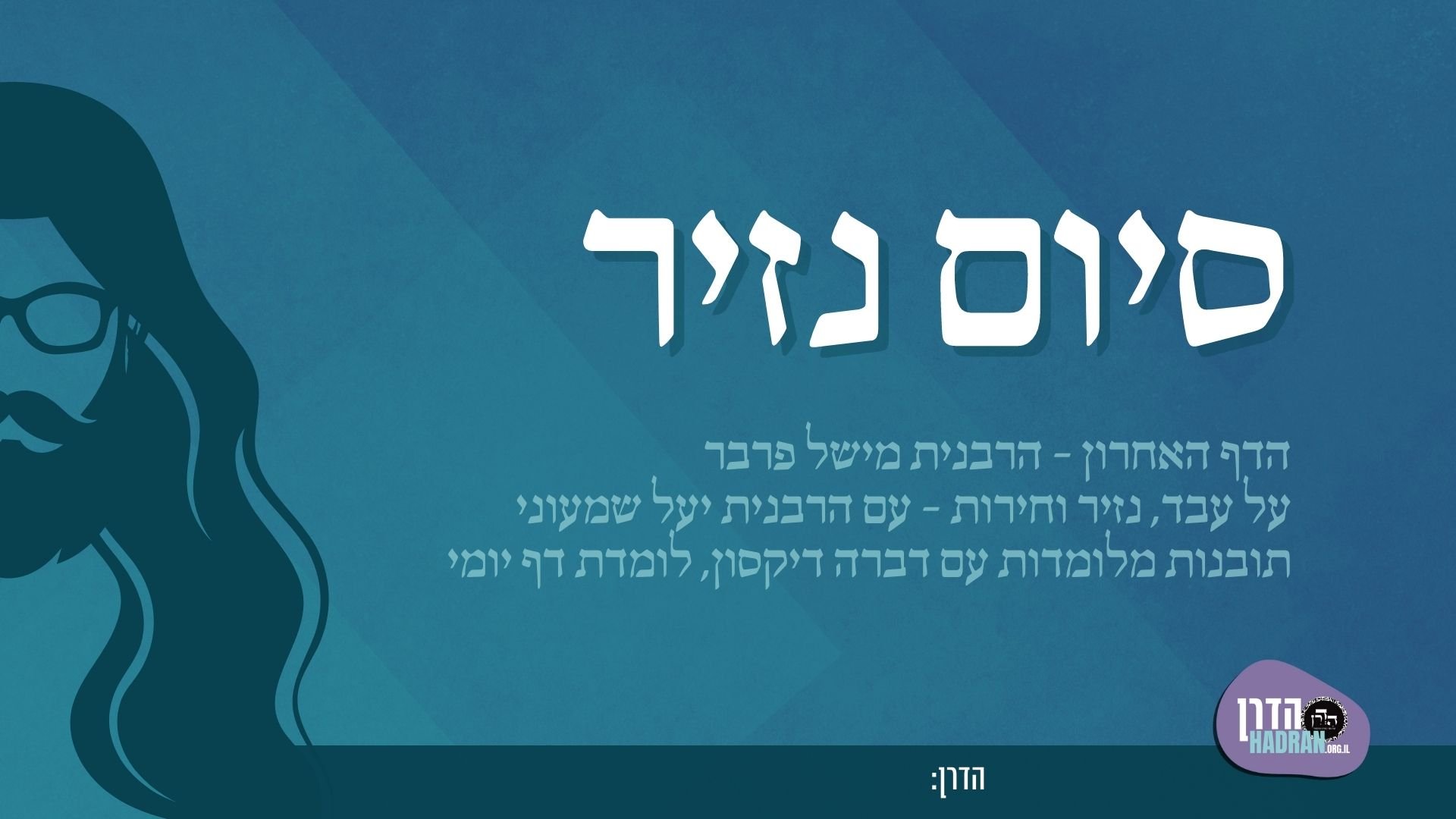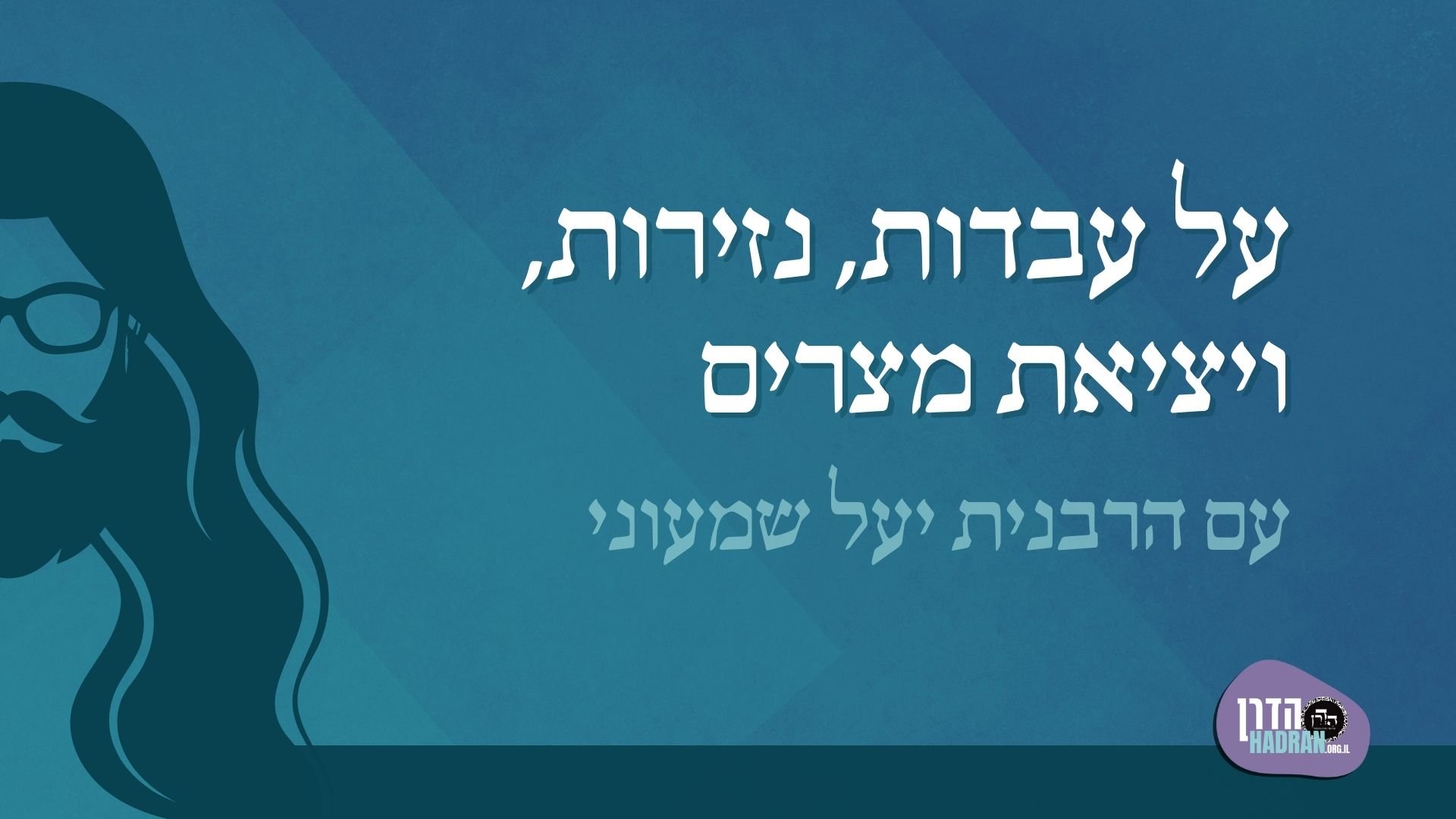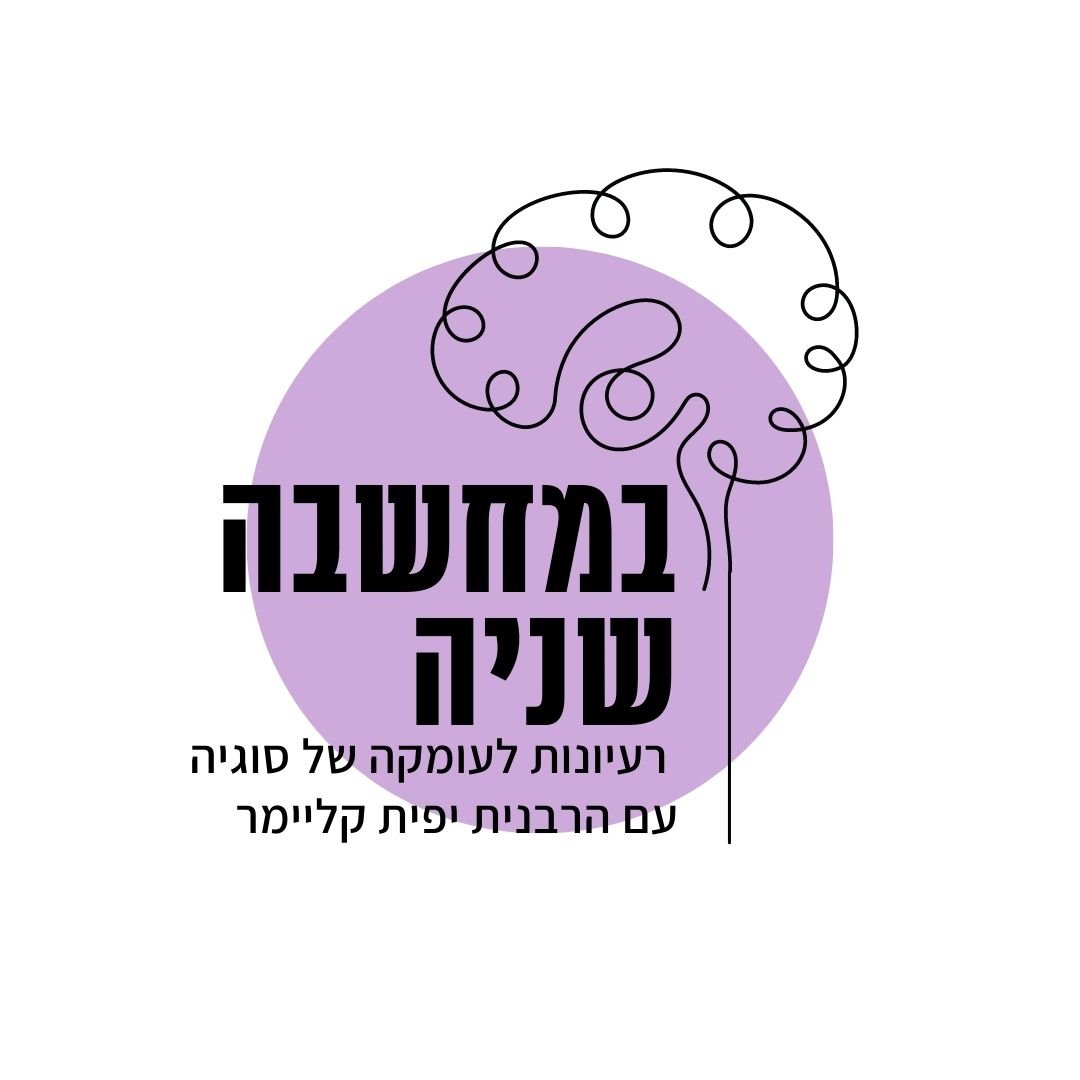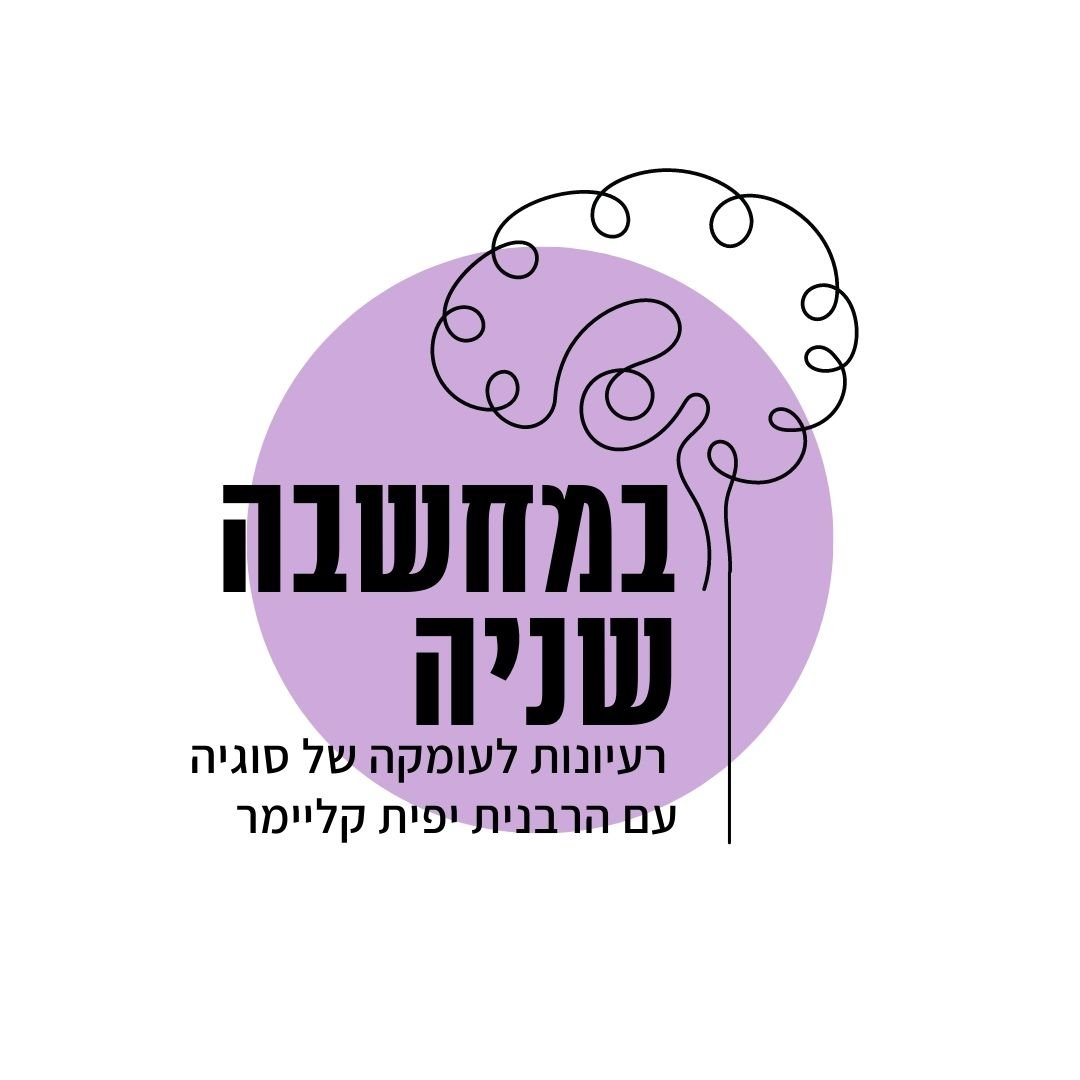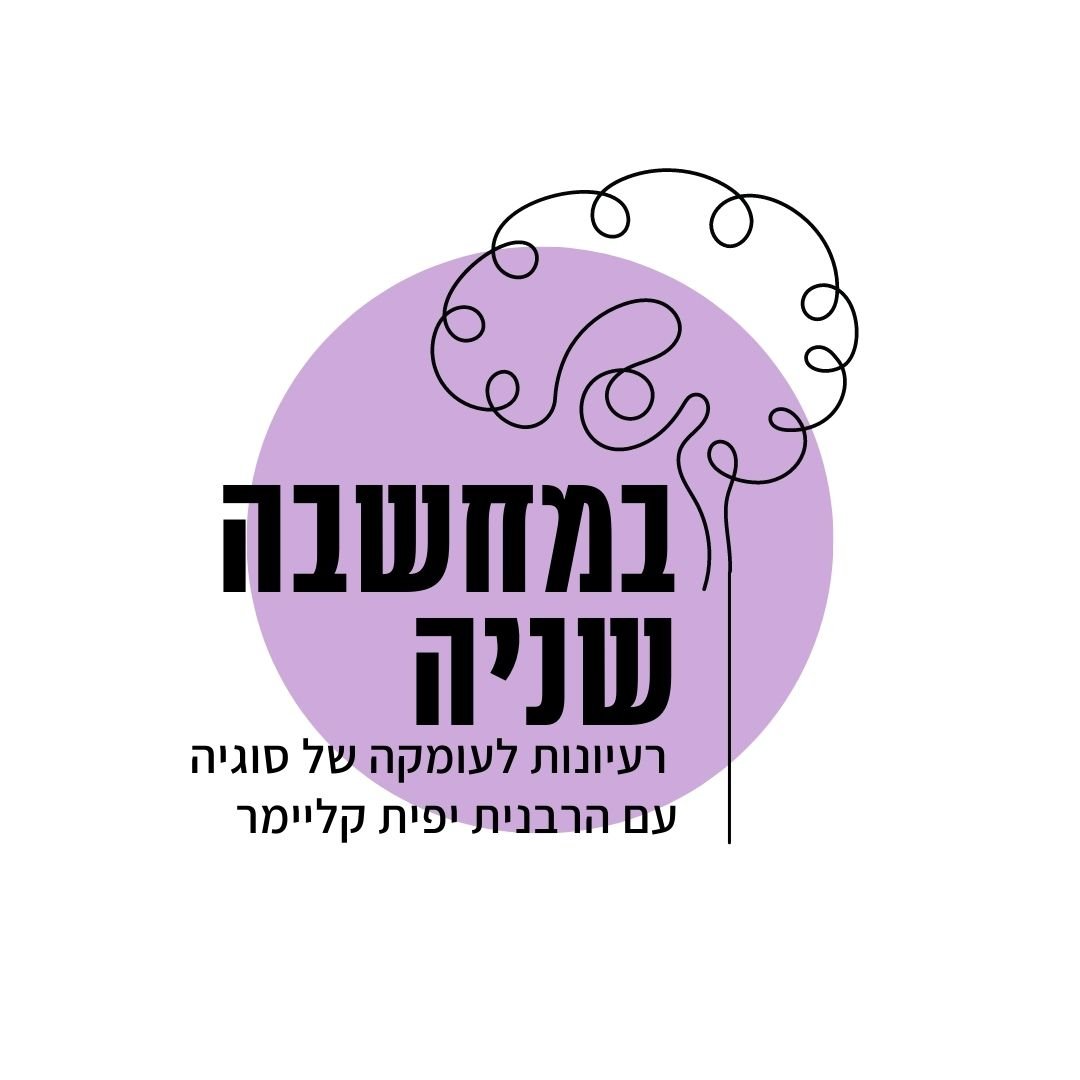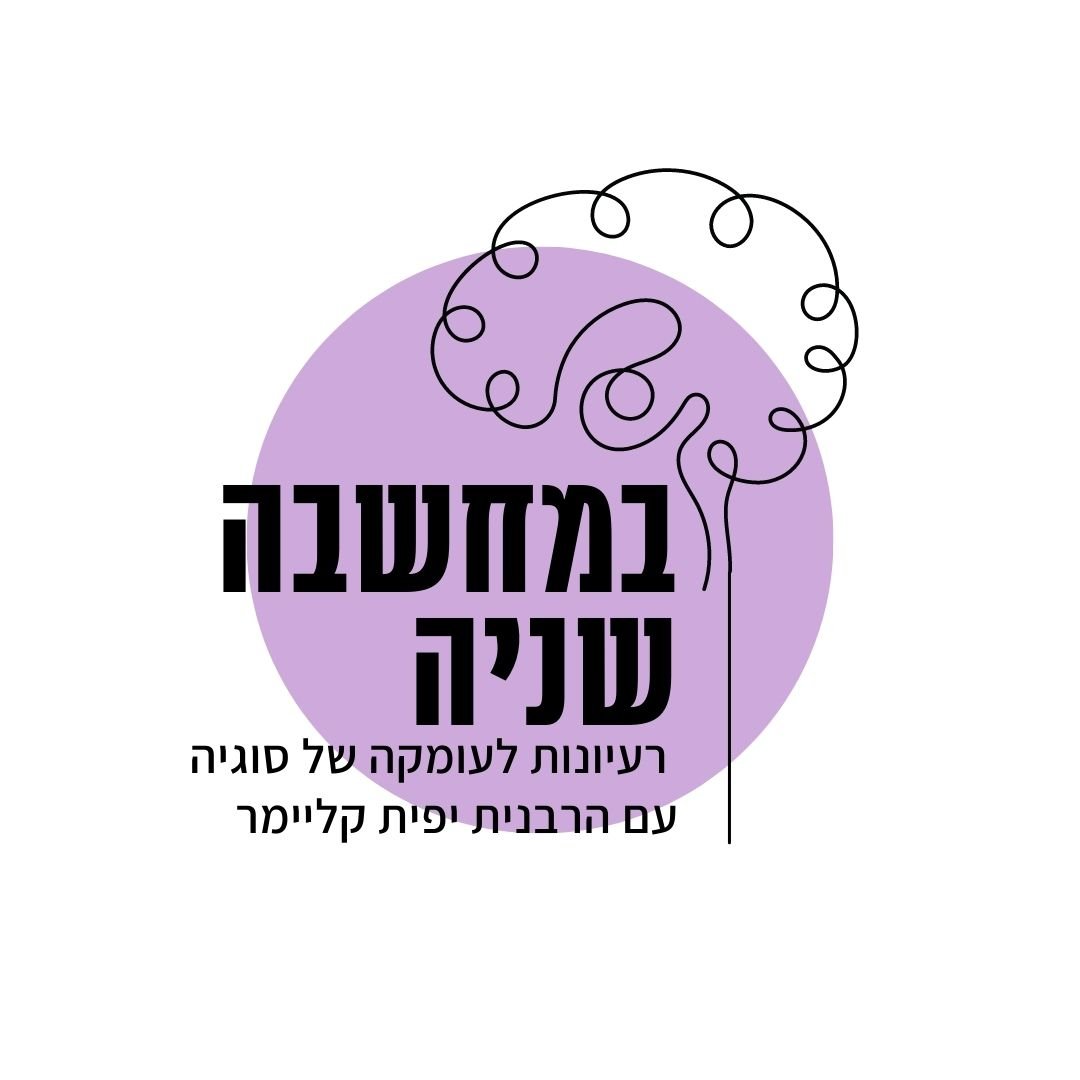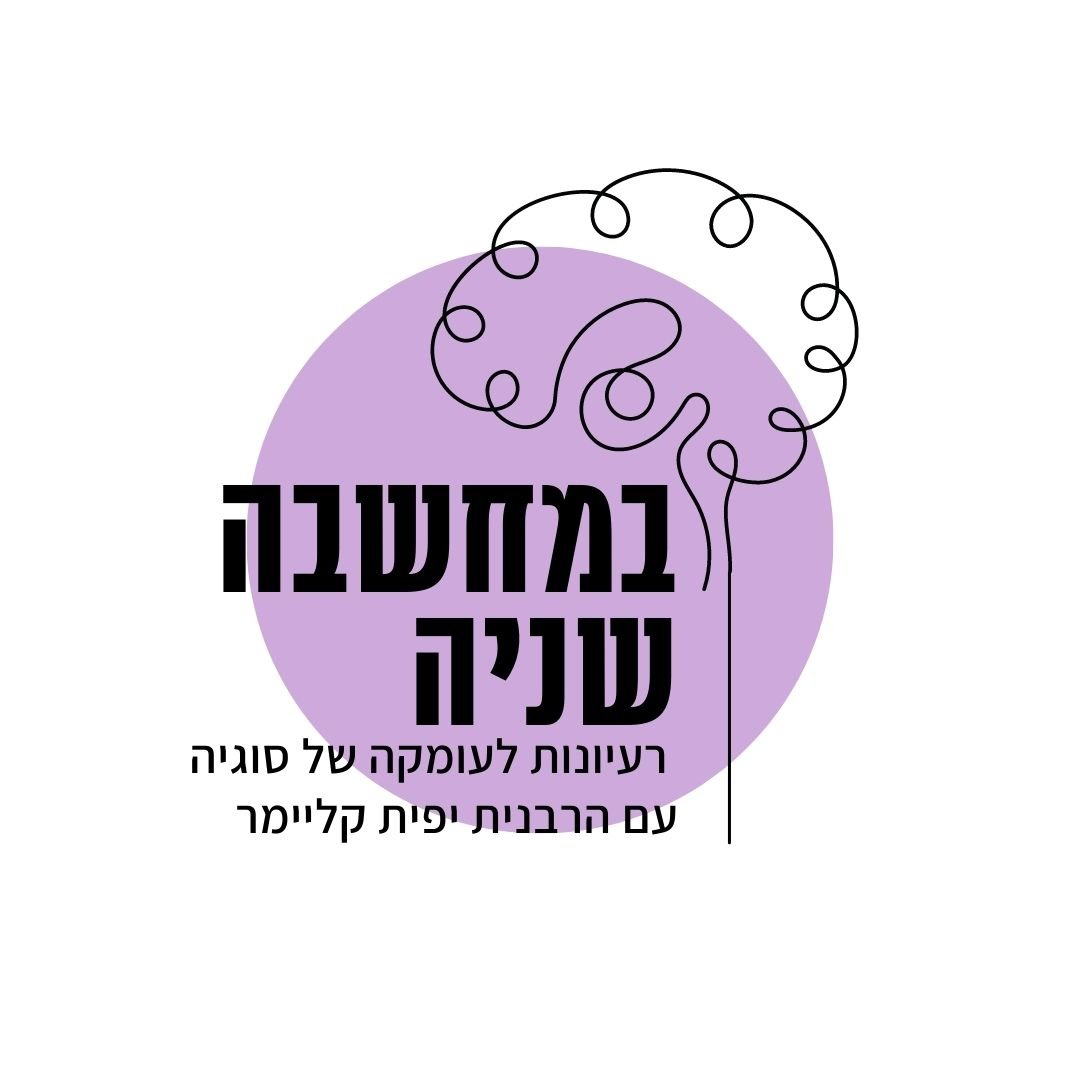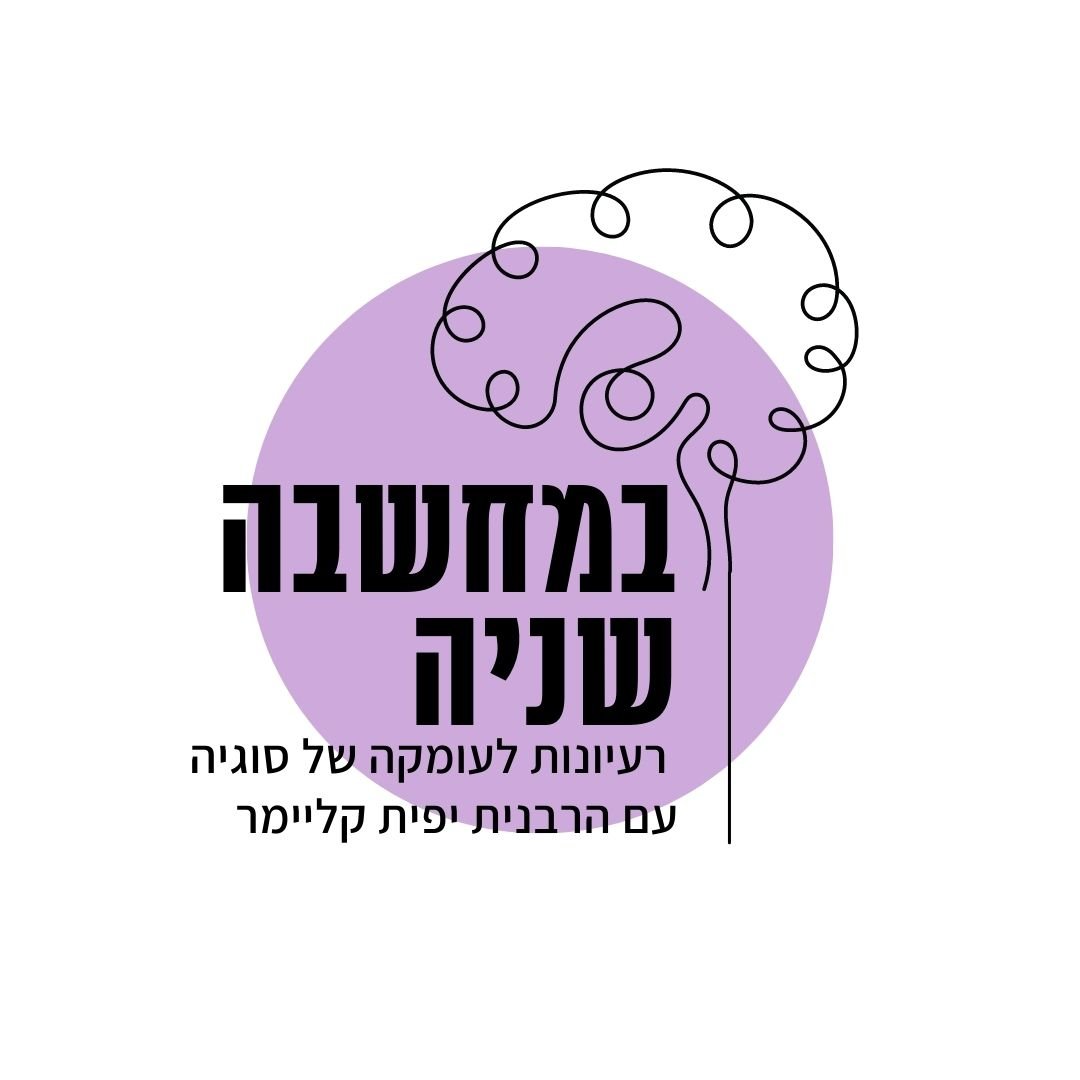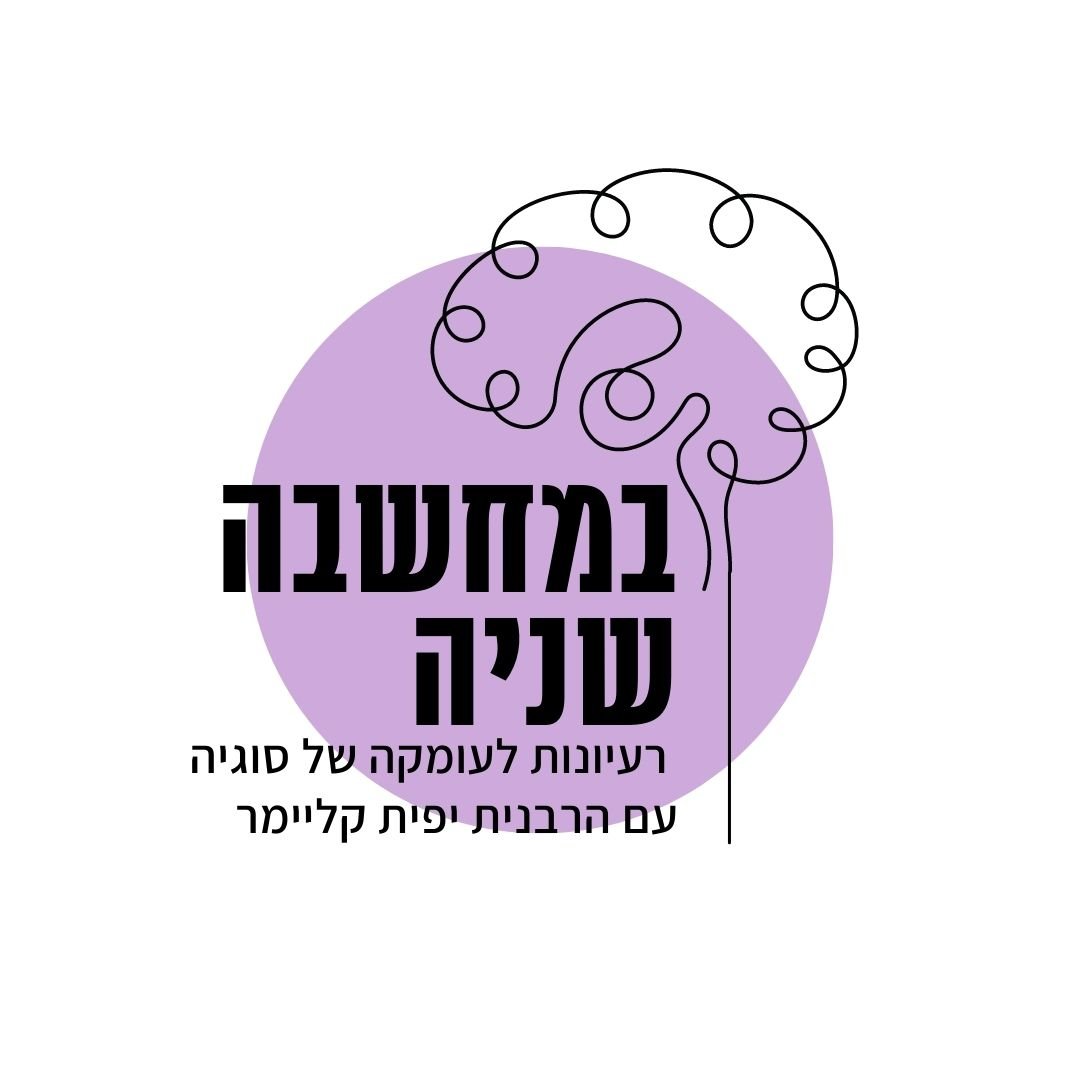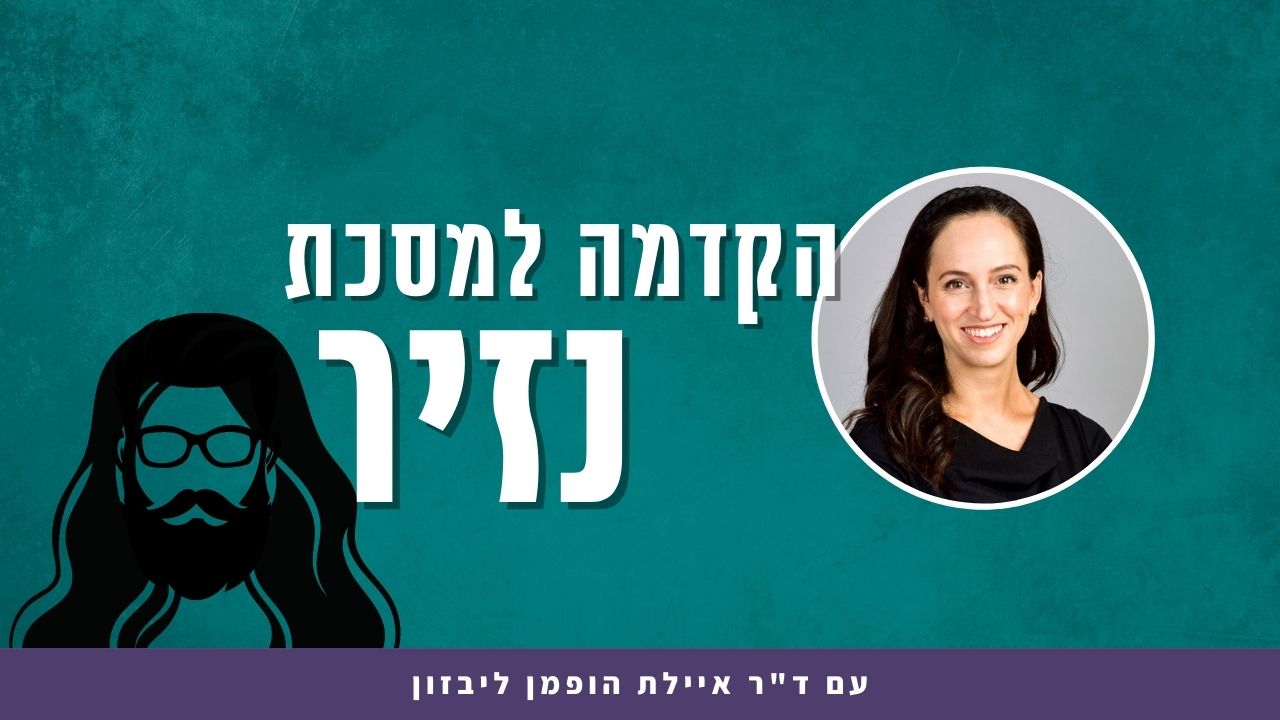נזיר כג
וּמַתְנִיתִין כְּגוֹן דַּאֲמַר לַהּ ״הֲרֵינִי נָזִיר, וְאַתְּ מַאי?״ מִשּׁוּם הָכִי, מֵיפֵר אֶת שֶׁלָּהּ וְשֶׁלּוֹ קַיָּים.
And the mishna is referring to a case where he said to her in the form of a question: I am hereby a nazirite, and what about you? This indicates that he himself has completely accepted his naziriteship, and he is simply asking his wife if she would like to join him. Due to that reason, as he did not link his vow to hers, he may nullify hers and his is intact.
מַתְנִי׳ הָאִשָּׁה שֶׁנָּדְרָה בְּנָזִיר, וְהָיְתָה שׁוֹתֶה בְּיַיִן וּמִטַּמְּאָה לְמֵתִים — הֲרֵי זֶה סוֹפֶגֶת אֶת הָאַרְבָּעִים. הֵפֵר לָהּ בַּעְלָהּ, וְהִיא לֹא יָדְעָה שֶׁהֵפֵר לָהּ בַּעְלָהּ, וְהָיְתָה שׁוֹתָה בְּיַיִן וּמִטַּמְּאָה לְמֵתִים — אֵינָהּ סוֹפֶגֶת אֶת הָאַרְבָּעִים. רַבִּי יְהוּדָה אוֹמֵר: אִם אֵינָהּ סוֹפֶגֶת אֶת הָאַרְבָּעִים — תִּסְפּוֹג מַכַּת מַרְדּוּת.
MISHNA: With regard to a woman who vowed to be a nazirite, and she transgressed her vow since she was drinking wine and rendering herself ritually impure by contact with the dead, she incurs the forty lashes for each of the Torah prohibitions she transgressed. If her husband nullified her vow, and she did not know that her husband had nullified her vow, and she was drinking wine and rendering herself impure by contact with the dead, she does not incur the forty lashes, as she is no longer a nazirite. Rabbi Yehuda says: Even if she does not incur the forty lashes by Torah law, she should incur lashes for rebelliousness [makat mardut], an extrajudicial punishment imposed by the Sages, for her intention to commit a transgression, since she believed that it was prohibited to her.
גְּמָ׳ תָּנוּ רַבָּנַן: ״אִישָׁהּ הֲפֵרָם וַה׳ יִסְלַח לָהּ״ — בְּאִשָּׁה שֶׁהֵפֵר לָהּ בַּעְלָהּ וְהִיא לֹא יָדְעָה הַכָּתוּב מְדַבֵּר, שֶׁהִיא צְרִיכָה כַּפָּרָה וּסְלִיחָה.
GEMARA: The Sages taught with regard to a verse in the section discussing vows: “Her husband has nullified them, and the Lord will forgive her” (Numbers 30:13), that the verse is speaking of a woman whose husband nullified her vow and she did not know that he had done so. It teaches that if she performs the actions prohibited by the vow she requires atonement and forgiveness.
וּכְשֶׁהָיָה מַגִּיעַ רַבִּי עֲקִיבָא אֵצֶל פָּסוּק זֶה, הָיָה בּוֹכֶה: וּמָה מִי שֶׁנִּתְכַּוֵּון לַעֲלוֹת בְּיָדוֹ בְּשַׂר חֲזִיר, וְעָלָה בְּיָדוֹ בְּשַׂר טָלֶה — טָעוּן כַּפָּרָה וּסְלִיחָה. הַמִּתְכַּוֵּון לַעֲלוֹת בְּיָדוֹ בְּשַׂר חֲזִיר וְעָלָה בְּיָדוֹ בְּשַׂר חֲזִיר — עַל אַחַת כַּמָּה וְכַמָּה.
And when Rabbi Akiva would reach this verse he would cry, saying: And if one who intended to pick up pork in his hand and eat it, and in fact he picked up the meat of a lamb in his hand and ate it, so that he did not in fact commit a transgression, like this woman who tried to sin and was unaware that her husband had nullified her vow, nevertheless requires atonement and forgiveness, then with regard to one who intends to pick up pork in his hand and in fact picked up pork in his hand, all the more so does he require atonement.
כַּיּוֹצֵא בַּדָּבָר אַתָּה אוֹמֵר: ״וְלֹא יָדַע וְאָשֵׁם וְנָשָׂא עֲוֹנוֹ״,
On a similar note, you can say and quote the following verse with regard to one who is liable to bring an uncertain guilt-offering, which is brought for a possible transgression: “Though he does not know it yet he is guilty, and shall bear his iniquity” (Leviticus 5:17).
וּמָה מִי שֶׁנִּתְכַּוֵּון לַעֲלוֹת בְּיָדוֹ בְּשַׂר טָלֶה, וְעָלָה בְּיָדוֹ בְּשַׂר חֲזִיר, כְּגוֹן חֲתִיכָה סָפֵק שֶׁל שׁוּמָּן סָפֵק שֶׁל חֵלֶב — אָמַר קְרָא ״וְנָשָׂא עֲוֹנוֹ״. מִי שֶׁנִּתְכַּוֵּון לַעֲלוֹת בְּיָדוֹ בְּשַׂר חֲזִיר, וְעָלָה בְּיָדוֹ בְּשַׂר חֲזִיר — עַל אַחַת כַּמָּה וְכַמָּה.
This verse teaches: And if in a case similar to one who intended to pick up the meat of a lamb in his hand and eat it, which is permitted, and he picked up pork in his hand and ate it, thereby sinning unintentionally, for example, where one took a piece of meat with regard to which it is uncertain whether it is permitted fat and uncertain whether it is forbidden fat, and he ate it, rendering him liable to bring a provisional guilt-offering, the verse states: “And shall bear his iniquity,” indicating that he requires atonement via an offering; then with regard to one who intends to pick up pork in his hand and in fact picked up pork in his hand, all the more so he requires atonement.
אִיסִי בֶּן יְהוּדָה אוֹמֵר: ״וְלֹא יָדַע וְאָשֵׁם וְנָשָׂא עֲוֹנוֹ״, וּמָה מִי שֶׁנִּתְכַּוֵּון לַעֲלוֹת בְּיָדוֹ בְּשַׂר טָלֶה, וְעָלָה בְּיָדוֹ בְּשַׂר חֲזִיר, כְּגוֹן שְׁתֵּי חֲתִיכוֹת אַחַת שֶׁל חֵלֶב וְאַחַת שֶׁל שׁוּמָּן — ״וְנָשָׂא עֲוֹנוֹ״. הַמִּתְכַּוֵּון לַעֲלוֹת בְּיָדוֹ בְּשַׂר חֲזִיר, וְעָלָה בְּיָדוֹ בְּשַׂר חֲזִיר — עַל אַחַת כַּמָּה וְכַמָּה.
Isi ben Yehuda says that this verse: “Though he does not know it yet he is guilty, and shall bear his iniquity” (Leviticus 5:17), should be explained in a slightly different manner: And if in a case similar to one who intended to pick up the meat of a lamb in his hand and he picked up pork in his hand, e.g., where there were two pieces before him, one of forbidden fat and one of permitted fat, and he picked up one and ate it without knowing which of them was forbidden, it states with regard to him: “And shall bear his iniquity,” i.e., he is obligated to bring an offering; then with regard to one who intends to pick up pork in his hand and picked up pork in his hand, all the more so is he in need of atonement.
עַל דָּבָר זֶה יִדְווּ הַדּוֹוִים.
The Gemara adds: And with regard to this matter, those who suffer should suffer, i.e., one can see from here the extent to which one requires atonement and forgiveness.
וְכׇל הָנֵי לְמָה לִי? צְרִיכִין, דְּאִי תְּנָא גַּבֵּי אִשָּׁה, הָתָם הוּא דְּבָעֲיָא כַּפָּרָה וּסְלִיחָה — מִשּׁוּם דְּמֵעִיקָּרָא לְאִיסּוּרָא אִיכַּוֵון. אֲבָל חֲתִיכָה סָפֵק שֶׁל חֵלֶב סָפֵק שֶׁל שׁוּמָּן, דִּלְהֶיתֵּרָא אִיכַּוֵּין — לָא בָּעֵי כַּפָּרָה וּסְלִיחָה.
The Gemara asks: And why do I need all these examples for the same idea? The Gemara answers: All of them are necessary, as had we taught this idea only with regard to the case of a woman, one might have said that it is there that she requires atonement and forgiveness because at the outset her intention was to sin. However, in the case of one who took a piece with regard to which it was uncertain whether it was permitted fat and uncertain whether it was forbidden fat, who intended to eat permitted food, one might have said that he does not require atonement and forgiveness.
וְאִי אִיתְּמַר הָדָא — דְּאִיכָּא אִיסּוּרָא. אֲבָל אִשָּׁה דְּהֵפֵר לָהּ בַּעְלָהּ, דְּהֶתֵּירָא — לָא תִּיבְעֵי כַּפָּרָה וּסְלִיחָה.
And had this case concerning one who eats a piece that might be forbidden been stated alone, one could say that atonement is required in this situation, as there is possibly a prohibition present before him. However, with regard to a woman whose husband nullified her vow, where she was in fact permitted to perform the actions she performed, perhaps she does not require atonement and forgiveness.
וְאִי אִיתְּמַר הָנֵי תַּרְתֵּי, הֲוָה אָמֵינָא: הָנֵי תַּרְתֵּי הוּא דְּסַגִּי לְהוֹן בְּכַפָּרָה וּסְלִיחָה — דְּלָא אִיקְּבַע אִיסּוּרָא. אֲבָל שְׁתֵּי חֲתִיכוֹת אַחַת שֶׁל חֵלֶב וְאַחַת שֶׁל שׁוּמָּן, דְּאִיקְּבַע אִיסּוּרָא — לָא סַגִּי לֵיהּ בְּכַפָּרָה וּסְלִיחָה, קָא מַשְׁמַע לַן דְּלָא שְׁנָא.
And had only these two cases been stated, I would say: It is in these two cases in which atonement and forgiveness are enough for them, as the prohibition is not established; even one who ate the piece that was possibly forbidden fat has not necessarily committed a sin. However, if there were two pieces, one of forbidden fat and one of permitted fat, where the prohibition is established, as there was definitely a forbidden piece before him and nevertheless he proceeded to eat one of them, one might have said that atonement and forgiveness should not suffice for him. Isi ben Yehuda therefore teaches us that there, it is no different, as even this individual is included in the verse: “And he shall be forgiven” (Leviticus 5:18).
אָמַר רַבָּה בַּר בַּר חָנָה אָמַר רַבִּי יוֹחָנָן: מַאי דִּכְתִיב ״כִּי יְשָׁרִים דַּרְכֵי ה׳ וְצַדִּקִים יֵלְכוּ בָם וּפֹשְׁעִים יִכָּשְׁלוּ בָם״ — מָשָׁל לִשְׁנֵי בְּנֵי אָדָם שֶׁצָּלוּ אֶת פִּסְחֵיהֶן, אֶחָד אֲכָלוֹ לְשׁוּם מִצְוָה, וְאֶחָד אֲכָלוֹ לְשׁוּם אֲכִילָה גַּסָּה. זֶה שֶׁאֲכָלוֹ לְשׁוּם מִצְוָה — ״וְצַדִּקִים יֵלְכוּ בָם״. וְזֶה שֶׁאֲכָלוֹ לְשׁוּם אֲכִילָה גַּסָּה — ״וּפֹשְׁעִים יִכָּשְׁלוּ בָם״.
§ Rabba bar bar Ḥanna said that Rabbi Yoḥanan said: What is the meaning of that which is written: “For the paths of the Lord are right, and the just walk in them, but transgressors stumble over them” (Hosea 14:10)? How can the same path lead to such different outcomes? This is comparable to two people who roasted their Paschal offerings on Passover eve, in the proper manner. One ate it for the sake of the mitzva, and one ate it for the sake of excessive eating. This one, who ate it for the sake of the mitzva, has fulfilled: “And the just walk in them,” while that one, who ate it for the sake of excessive eating, is described by the end of the verse: “But transgressors stumble over them.”
אֲמַר לֵיהּ רֵישׁ לָקִישׁ: הַאי ״רָשָׁע״ קָרֵית לֵיהּ?! נְהִי דְּלָא קָא עָבֵיד מִצְוָה מִן הַמּוּבְחָר, פֶּסַח מִיהָא קָא עָבֵיד! אֶלָּא: מָשָׁל לִשְׁנֵי בְּנֵי אָדָם, זֶה אִשְׁתּוֹ וַאֲחוֹתוֹ עִמּוֹ, וְזֶה אִשְׁתּוֹ וַאֲחוֹתוֹ עִמּוֹ. לְזֶה נִזְדַּמְּנָה לוֹ אִשְׁתּוֹ, וּלְזֶה נִזְדַּמְּנָה לוֹ אֲחוֹתוֹ. זֶה שֶׁנִּזְדַּמְּנָה לוֹ אִשְׁתּוֹ — ״צַדִּקִים יֵלְכוּ בָם״, וְזֶה שֶׁנִּזְדַּמְּנָה לוֹ אֲחוֹתוֹ — ״וּפֹשְׁעִים יִכָּשְׁלוּ בָם״.
Reish Lakish said to Rabba bar bar Ḥanna: You call this individual wicked? Even though he had not performed the mitzva in the optimal manner when he eats this Paschal offering, he has at least performed the mitzva of the Paschal offering. Rather, this is comparable to two people; this one has his wife and sister in the same house with him, and that one has his wife and sister with him. Each husband arrives home and engages in sexual intercourse with one of the women. This one happened upon his wife, and that one happened upon his sister. This one, who happened upon his wife, is described by the phrase “And the just walk in them,” and that one, who happened upon his sister, is described by the phrase “But transgressors stumble over them.”
מִי דָּמֵי? אֲנַן קָאָמְרִינַן חֲדָא דֶּרֶךְ. הָכָא — שְׁנֵי דְרָכִים. אֶלָּא, מָשָׁל לְלוֹט וּשְׁתֵּי בְנוֹתָיו עִמּוֹ. הֵן שֶׁנִּתְכַּוְּונוּ לְשֵׁם מִצְוָה — ״וְצַדִּקִים יֵלְכוּ בָם״, הוּא שֶׁנִּתְכַּוֵּין לְשֵׁם עֲבֵירָה — ״וּפֹשְׁעִים יִכָּשְׁלוּ בָם״.
The Gemara raises a difficulty: Is it comparable? We said one path; i.e., two people follow the same path by performing the very same action with two different outcomes; whereas here there are two paths. Each person engaged in sexual intercourse with a different relative and therefore they cannot be said to have followed the same path. Rather, it is comparable to Lot and his two daughters, who were with him. They, who intended to engage in sexual intercourse with him for the sake of a mitzva, as they thought that the entire world was destroyed and wished to preserve the human race, are described in the first part of the verse: “And the just walk in them.” He who intended to act for the sake of a transgression is described by the last part: “But transgressors stumble over them.”
וְדִלְמָא הוּא נָמֵי לְשׁוּם מִצְוָה אִיכַּוֵּוין? אָמַר רַבִּי יוֹחָנָן: כׇּל הַפָּסוּק הַזֶּה עַל שֵׁם עֲבֵירָה נֶאֱמַר.
The Gemara asks: And perhaps Lot too intended that his actions should be for the sake of a mitzva? The Gemara answers: This was not the case, as Rabbi Yoḥanan said with regard to Lot: This entire verse: “And Lot lifted up his eyes, and saw all the plain of the Jordan, that it was well watered everywhere” (Genesis 13:10), is stated with regard to the sin of licentiousness. Since this verse teaches that Lot was a lustful man, it can therefore be assumed he meant to sin with his daughters as well.
״וַיִּשָּׂא לוֹט״ — ״וַתִּשָּׂא אֵשֶׁת אֲדֹנָיו אֶת עֵינֶיהָ״. [״אֶת עֵינָיו״ —] ״כִּי הִיא יָשְׁרָה בְעֵינָי״.
Rabbi Yoḥanan explains: “And Lot lifted up his eyes” employs the same expression as a verse that refers to Joseph’s temptation: “That his master’s wife lifted up her eyes” (Genesis 39:7), which is clearly referring to sin. The phrase used in reference to Lot, “his eyes,” is stated similarly to Samson’s appraisal of the Philistine girl he sought to marry: “For she is pleasing in my eyes” (Judges 14:3).
״וַיַּרְא״ — ״וַיַּרְא אֹתָהּ שְׁכֶם בֶּן חֲמוֹר״. ״אֶת כׇּל כִּכַּר הַיַּרְדֵּן״ — ״כִּי בְעַד אִשָּׁה זוֹנָה עַד כִּכַּר לָחֶם״. ״כִּי כֻלָּהּ מַשְׁקֶה״ — ״אֵלְכָה אַחֲרֵי מְאַהֲבַי נֹתְנֵי לַחְמִי וּמֵימַי צַמְרִי וּפִשְׁתִּי שַׁמְנִי וְשִׁיקּוּיָי״.
Rabbi Yoḥanan continues to interpret the verse as a series of references to licentiousness. The phrase “and saw” is reminiscent of the verse dealing with Jacob’s daughter Dinah: “And Shechem, the son of Hamor the Hivite, saw her and he took her, and lay with her” (Genesis 34:2). The verse continues: “All the plain [kikar] of the Jordan,” which alludes to the verse: “For on account of a harlot a man is brought to a loaf [kikar] of bread” (Proverbs 6:26). The last part of the verse: “That it was well watered everywhere,” recalls: “I will go after my lovers, who give me my bread and my water, my wool and my flax, my oil and my drink” (Hosea 2:7).
וְהָא מֵינָס אֲנִיס! תָּנָא מִשּׁוּם רַבִּי יוֹסֵי בַּר רַב חוֹנִי: לָמָּה נָקוּד עַל וָיו ״וּבְקוּמָהּ״ שֶׁל בְּכִירָה, לוֹמַר שֶׁבְּשִׁכְבָהּ לָא יָדַע, אֲבָל בְּקוּמָהּ יָדַע.
The Gemara asks: But Lot was forced to participate in the sexual intercourse, as he was asleep at the time; how can he be considered a sinner? The Gemara answers that this is as a Sage taught in the name of Rabbi Yosei bar Rav Ḥoni: Why is there a dot in a Torah scroll over the letter vav of the word “uvekumah,” with regard to Lot’s elder daughter, in the verse: “And he did not know when she lay down and when she arose [uvekumah]” (Genesis 19:33)? This dot serves to say that when she lay down he did not know; however, when she arose he knew what she had done, as he later understood what had happened.
וּמַאי הֲוָה לֵיהּ לְמִיעְבַּד? מַאי דַהֲוָה הֲוָה! נָפְקָא מִינַּהּ, דִּלְפַנְיָא אַחֲרִינָא לָא אִיבְּעִי לְמִישְׁתֵּי חַמְרָא.
The Gemara asks: And what could he have done about it? What has happened has happened; i.e., Lot could not change the past. The Gemara answers: The difference is that on the other, following, night, he should not have drunk wine again. By allowing himself to get drunk a second time, he showed that the end result, engaging in sexual intercourse with his younger daughter, was something he desired.
דָּרֵשׁ רָבָא: מַאי דִּכְתִיב ״אָח נִפְשָׁע מִקִּרְיַת עֹז
§ Rava interpreted a verse homiletically with regard to Lot: What is the meaning of that which is written: “A brother offended is harder to be won than a strong city,
וּמִדְיָנִים כִּבְרִיחַ אַרְמוֹן״? ״אָח נִפְשָׁע מִקִּרְיַת עֹז״ — זֶה לוֹט, שֶׁפֵּירַשׁ מֵאַבְרָהָם. ״וּמִדְיָנִים כִּבְרִיחַ אַרְמוֹן״ — שֶׁהֵטִיל מִדְיָנִים כִּבְרִיחִין וְאַרְמוֹן, ״לֹא יָבֹא עַמּוֹנִי וּמוֹאָבִי בִּקְהַל ה׳״.
and their contentions are like the bars of a castle” (Proverbs 18:19)? “A brother offended is harder to be won than a strong city,” this is Lot, called Abraham’s brother (see Genesis 14:14), who separated from Abraham. “And their contentions are like the bars of a castle,” this is because Lot brought contention between the Jewish people and his own descendants like bars, which lock the gates of a castle. Just as no one can enter a locked castle, so too Lot’s descendants, Ammon and Moab, were prevented from joining the Jewish people, as it states: “An Ammonite and a Moabite shall not enter into the assembly of the Lord” (Deuteronomy 23:4).
דָּרֵשׁ רָבָא וְאִיתֵּימָא רַבִּי יִצְחָק: מַאי דִּכְתִיב ״לְתַאֲוָה יְבַקֵּשׁ נִפְרָד וּבְכׇל תּוּשִׁיָּה יִתְגַּלָּע״? ״לְתַאֲוָה יְבַקֵּשׁ נִפְרָד״ — זֶה לוֹט, ״וּבְכָל תּוּשִׁיָּה יִתְגַּלָּע״ — שֶׁנִּתְגַּלָּה קְלוֹנוֹ בְּבָתֵּי כְנֵסִיּוֹת וּבְבָתֵּי מִדְרָשׁוֹת. דִּתְנַן: עַמּוֹנִי וּמוֹאָבִי אֲסוּרִין, וְאִיסּוּרָן אִיסּוּר עוֹלָם.
On the same issue, Rava expounded a verse homiletically, and some say it was Rabbi Yitzḥak: What is the meaning of that which is written: “He who separates himself seeks his own desire, and snarls against all sound wisdom” (Proverbs 18:1)? “He who separates himself seeks his own desire,” this is Lot, who separated from Abraham. “And snarls [yitgala] against all sound wisdom,” this too describes Lot, as his shame was eventually revealed [nitgala] in the synagogues, when his actions recorded in the Torah are read in public, and in the study halls, where the halakhot of his descendants are taught. As we learned in a mishna: An Ammonite and a Moabite are prohibited from entering the congregation by marrying a Jewish woman, and their prohibition is permanent.
אָמַר עוּלָּא: תָּמָר זִינְּתָה, זִמְרִי זִינָּה.
§ In relation to the preceding discussion with regard to the daughters of Lot, who acted in a wanton manner for the sake of a mitzva, the Gemara cites that which Ulla said: Tamar engaged in licentious sexual intercourse with her father-in-law, Judah (see Genesis, chapter 38), and Zimri ben Salu also engaged in licentious sexual intercourse with a Midianite woman (see Numbers, chapter 25).
תָּמָר זִינְּתָה — יָצְאוּ מִמֶּנָּה מְלָכִים וּנְבִיאִים. זִמְרִי זִינָּה — נָפְלוּ עָלָיו כַּמָּה רְבָבוֹת מִיִּשְׂרָאֵל.
Yet despite the similarity between their actions, Tamar engaged in licentious sexual intercourse for the sake of a mitzva, to have children, and therefore she merited that kings of the House of David descended from her. King David’s lineage traces back to Tamar’s son Peretz (see Ruth 4:18–22). And she also merited to be the ancestor of prophets, e.g., Isaiah, who was related to the royal family. Conversely, with regard to Zimri, who engaged in licentious sexual intercourse for the purpose of a transgression, several multitudes of Israel fell due to him; twenty-four thousand in a plague (see Numbers 25:9). This shows that a great deal depends on one’s intentions.
אָמַר רַב נַחְמָן בַּר יִצְחָק: גְּדוֹלָה עֲבֵירָה לִשְׁמָהּ מִמִּצְוָה שֶׁלֹּא לִשְׁמָהּ. וְהָאָמַר רַב יְהוּדָה אָמַר רַב: לְעוֹלָם יַעֲסוֹק אָדָם בְּתוֹרָה וּבְמִצְוֹת אֲפִילּוּ שֶׁלֹּא לִשְׁמָן, שֶׁמִּתּוֹךְ שֶׁלֹּא לִשְׁמָן בָּא לִשְׁמָן?
§ Rav Naḥman bar Yitzḥak said: Greater is a transgression committed for its own sake, i.e., for the sake of Heaven, than a mitzva performed not for its own sake. The Gemara questions this comparison: But didn’t Rav Yehuda say that Rav said: A person should always occupy himself with Torah and mitzvot even not for their own sake, as it is through acts performed not for their own sake that good deeds for their own sake come about? How, then, can any transgression be considered greater than a mitzva not for the sake of Heaven?
אֶלָּא אֵימָא: כְּמִצְוָה שֶׁלֹּא לִשְׁמָהּ. דִּכְתִיב: ״תְּבֹרַךְ מִנָּשִׁים יָעֵל אֵשֶׁת חֶבֶר הַקֵּינִי מִנָּשִׁים בָּאֹהֶל תְּבֹרָךְ״. מַאן נָשִׁים שֶׁבָּאֹהֶל — שָׂרָה רִבְקָה רָחֵל וְלֵאָה.
Rather, one must emend the above statement and say as follows: A transgression for the sake of Heaven is equivalent to a mitzva not for its own sake. The proof is as it is written: “Blessed above women shall Yael be, the wife of Hever the Kenite, above women in the tent she shall be blessed” (Judges 5:24), and it is taught: Who are these “women in the tent?” They are Sarah, Rebecca, Rachel, and Leah. Yael’s forbidden intercourse with Sisera for the sake of Heaven is compared to the sexual intercourse in which the Matriarchs engaged.
אָמַר רַבִּי יוֹחָנָן: שֶׁבַע בְּעִילוֹת בָּעַל אוֹתוֹ רָשָׁע בְּאוֹתָהּ שָׁעָה, שֶׁנֶּאֱמַר: ״בֵּין רַגְלֶיהָ כָּרַע נָפַל שָׁכָב וְגוֹ׳״.
The Gemara asks: How is it derived that Yael engaged in sexual intercourse with Sisera? As Rabbi Yoḥanan said: That wicked one, Sisera, engaged in seven acts of sexual intercourse with Yael at that time, as it is stated: “Between her feet he sunk, he fell, he lay; between her feet he sunk, he fell; where he sunk, there he fell down dead” (Judges 5:27). Each mention of falling is referring to another act of intercourse.
וְהָא קָא מִתְהַנְיָא מִבְּעִילָה דִילֵיהּ? אָמַר רַבִּי יוֹחָנָן: כׇּל טוֹבָתָן שֶׁל רְשָׁעִים — אֵינָהּ אֶלָּא רָעָה אֵצֶל צַדִּיקִים,
The Gemara asks: But Yael at least enjoyed the sexual intercourse with him; why is the verse so effusive in her praise? Rabbi Yoḥanan said: All the good of the wicked, i.e., anything good received from wicked people, is nothing other than evil for the righteous, and therefore she certainly derived no pleasure from the act.
שֶׁנֶּאֱמַר: ״הִשָּׁמֶר לְךָ מִדַּבֵּר עִם יַעֲקֹב מִטּוֹב וְעַד רָע״. בִּשְׁלָמָא רַע — שַׁפִּיר, אֶלָּא טוֹב אַמַּאי לָא? אֶלָּא, לָאו שְׁמַע מִינַּהּ: טוֹבָתוֹ — רָעָה הִיא. שְׁמַע מִינַּהּ.
The Gemara asks: From where is this principle derived? As it is stated in the verse that God warned Laban the Aramean, when he was chasing Jacob: “Guard yourself from speaking to Jacob, from good to evil” (Genesis 31:24). Granted, with regard to the warning against speaking evil, it is fine that Laban was warned not to harm Jacob. However, why shouldn’t he say anything good to Jacob? Rather, must one not conclude from this verse that even Laban’s good is bad in Jacob’s eyes? The Gemara concludes: Learn from this that it is so.
גּוּפָא, אָמַר רַב יְהוּדָה אָמַר רַב: לְעוֹלָם יַעֲסוֹק אָדָם בְּתוֹרָה וּבְמִצְוֹת אֲפִילּוּ שֶׁלֹּא לִשְׁמָן, שֶׁמִּתּוֹךְ שֶׁלֹּא לִשְׁמָן בָּא לִשְׁמָן. שֶׁבִּשְׂכַר אַרְבָּעִים וּשְׁנַיִם קׇרְבָּנוֹת שֶׁהִקְרִיב בָּלָק הָרָשָׁע — זָכָה וְיָצְאָה מִמֶּנּוּ רוּת. וְאָמַר רַבִּי יוֹסֵי בְּרַבִּי חֲנִינָא: רוּת, בַּת בְּנוֹ שֶׁל עֶגְלוֹן מֶלֶךְ מוֹאָב הָיְתָה.
§ The Gemara returns to analyze in greater detail the above matter itself. Rav Yehuda said that Rav said: A person should always occupy himself with Torah and mitzvot even not for their own sake, as through these acts performed not for their own sake, good deeds for their own sake come about. The proof for this is that in reward for the forty-two offerings that the wicked Balak sacrificed (see Numbers, chapter 23), although he did not do so for the sake of Heaven but to facilitate the cursing of the Jewish people, nevertheless he merited that Ruth descended from him. Not only was he the forebear of a righteous convert, but also of King David. And this is as Rabbi Yosei, son of Rabbi Ḥanina, said: Ruth was the daughter of the son of Eglon, king of Moab, who descended from Balak, king of Moab.
אָמַר רַבִּי חִיָּיא בַּר אַבָּא אָמַר רַבִּי יוֹחָנָן: מִנַּיִן שֶׁאֵין הַקָּדוֹשׁ בָּרוּךְ הוּא מְקַפֵּחַ אֲפִילּוּ שְׂכַר שִׂיחָה נָאָה, דְּאִילּוּ בְּכִירָה דִּקְרָיתֵיהּ מוֹאָב, אֲמַר לֵיהּ רַחֲמָנָא ״אַל תָּצַר אֶת מוֹאָב וְאַל תִּתְגָּר בָם מִלְחָמָה״. מִלְחָמָה הוּא דְּלָא, אֲבָל צַעוֹרֵי צַעֲרִינֻּן.
Rabbi Ḥiyya bar Abba said that Rabbi Yoḥanan said: From where is it derived that the Holy One, Blessed be He, does not deprive one of even the reward for proper speech, i.e., for speaking in a refined manner? As while there is the case of Lot’s elder daughter, who called her son Moab [mo’av], which alludes to his shameful origins, as me’av means: From father, and the Merciful One says to Moses: “Do not besiege Moab, nor contend with them in war” (Deuteronomy 2:9), which indicates: It is war that is not permitted; however, with regard to harassing, the Jews were permitted to harass them.
וְאִילּוּ צְעִירָה דִּקְרָיתֵיהּ בֶּן עַמִּי. אֲמַר לֵיהּ: ״אַל תְּצֻרֵם וְאַל תִּתְגָּר בָם״. אֲפִילּוּ צַעוֹרֵי, לָא תְּצַעֲרִינֻּן כְּלָל.
And while there is the case of Lot’s younger daughter, who called her son Ben-Ami, son of my people, without explicitly mentioning her father. With regard to her descendants, God said to Moses: “Do not harass them, nor contend with them” (Deuteronomy 2:19), which means even as far as harassing is concerned, you may not harass them at all.
אָמַר רַבִּי חִיָּיא בַּר אָבִין, אָמַר רַבִּי יְהוֹשֻׁעַ בֶּן קׇרְחָה: לְעוֹלָם יַקְדִּים אָדָם לִדְבַר מִצְוָה, שֶׁבִּשְׂכַר לַיְלָה אַחַת שֶׁקְּדָמַתָּה בְּכִירָה לִצְעִירָה,
Rabbi Ḥiyya bar Avin said that Rabbi Yehoshua ben Korḥa said: A person should always come first with regard to a matter of a mitzva, as in reward of the one night that the elder daughter of Lot preceded the younger for the sake of a mitzva,

